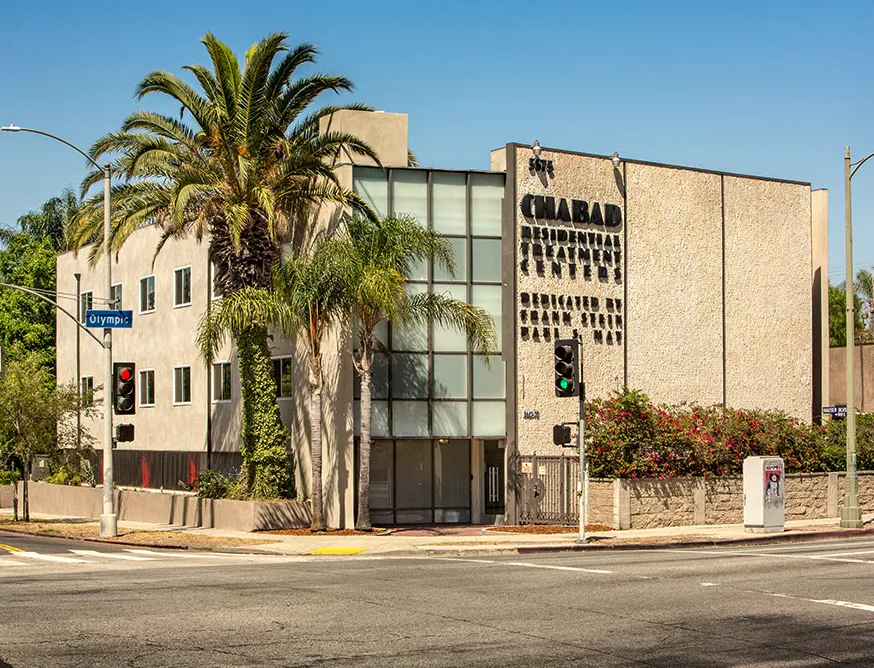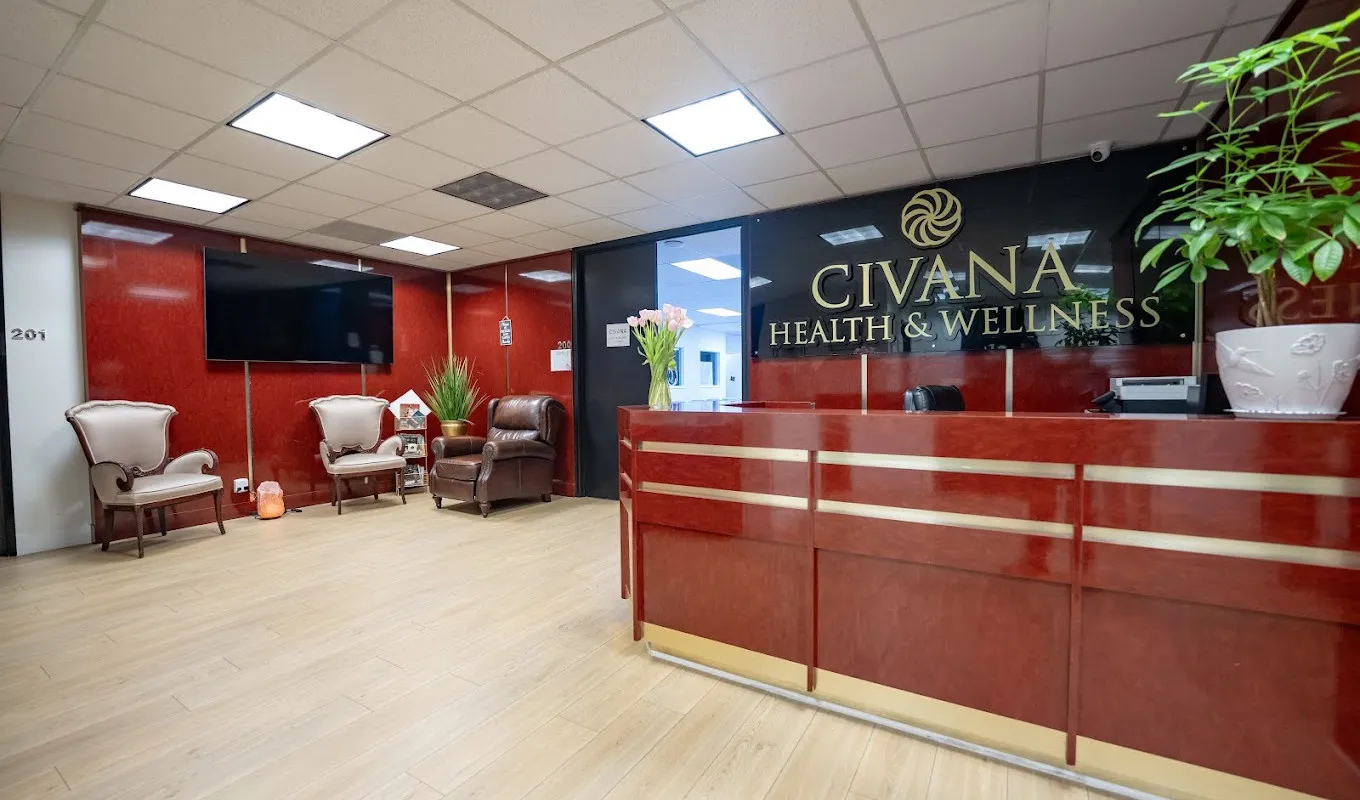Understanding Alcohol Addiction and When to Seek Help
Alcohol addiction, also known as alcohol use disorder, is a medical condition that goes beyond occa...
Alcohol addiction, also known as alcohol use disorder, is a medical condition that goes beyond occasional heavy drinking. It involves a compulsive need to consume alcohol despite its negative effects on health, relationships, or responsibilities. Recognizing when casual drinking crosses the line into dependency can be difficult, but early intervention can significantly improve outcomes.
Common signs of alcohol addiction include increased tolerance, withdrawal symptoms, secrecy about drinking habits, neglecting responsibilities, and drinking to cope with stress or emotions. Some people may believe they need to "hit rock bottom" before getting help, but the reality is that support is available at any stage of the journey toward recovery. Misconceptions like this often delay treatment and make it harder to regain control.
If you're wondering how to get sober, you're not alone. Many people begin by learning more about their relationship with alcohol and exploring local resources. Whether you're worried about your drinking or supporting someone you care about, taking the first step toward help is a strong and hopeful move. Knowing where to get help with alcohol addiction can give you or a loved one the direction and support needed to begin healing.
Recognizing Signs of Alcohol Dependence
Identifying alcohol dependence, whether in yourself or a loved one, often starts with observing daily patterns and behaviors that signal more than occasional use. While someone may not drink every day, signs of alcohol dependence can still be present when alcohol takes priority over responsibilities, health, or relationships. It's important to look beyond how much or how often someone drinks and focus instead on how alcohol impacts their life.
Common signs of alcohol dependence include needing alcohol to relax or function, being unable to cut back despite wanting to, developing a higher tolerance, and experiencing withdrawal symptoms like anxiety or tremors when not drinking. Neglecting work, social life, or family obligations due to drinking is another red flag.
For many people, denial or rationalization can make it hard to recognize these behaviors. But even moderate drinking patterns can evolve into alcohol dependency over time. Seeking clinical support is essential when alcohol begins to interfere with daily functioning, emotional well-being, or safety. If you're uncertain whether your or a loved one’s drinking is a concern, talking to a treatment professional can offer insight and next steps.
Emergency Help for Alcohol Addiction in LA County
When alcohol addiction becomes a crisis—such as during a medical emergency, risk of overdose, or a psychiatric breakdown—immediate help is critical. In Los Angeles County, these situations can be addressed through a variety of urgent care resources. If someone is in danger due to alcohol use, call 911 or visit the nearest emergency room. Medical professionals can stabilize the individual and initiate transfer to detox or psychiatric services if needed.
Mental health and substance use crisis lines are also available 24/7 for urgent guidance. These hotlines connect individuals with trained professionals who provide emotional support and help coordinate immediate services such as mobile crisis teams or short-term intensive intervention.
In some cases, withdrawing from alcohol without medical supervision can be life-threatening. Emergency detox units in LA County hospitals may be required to safely manage symptoms. If you're unsure whether a situation qualifies as an emergency but feel something is wrong, it’s better to act. Knowing where to get help with alcohol addiction—even during a crisis—can make all the difference in preventing harm and guiding someone toward recovery.
Local Helplines for Alcohol Addiction
If you or someone you care about is facing an alcohol use disorder, local helplines offer immediate, confidential support. These services connect you with trained counselors who can assess the urgency of your situation and guide you toward appropriate treatment options in or near Acton.
When you call a helpline, expect compassionate, non-judgmental assistance. Counselors can explain the difference between inpatient treatment and outpatient programs, help you understand how to get sober safely, and refer you to local alcohol detox facilities if needed. Many helplines operate 24/7 to ensure you’re never alone—especially important during moments of crisis or relapse.
Local crisis and addiction helplines can also provide information on recovery support groups, such as AA meetings in Acton, and walk you through how to use insurance for rehab. Whether you're seeking help for yourself or assisting a loved one, calling a helpline is a strong first step toward recovery and lasting change.
What to Expect from Alcohol Detox in Acton
Alcohol detox is often the first step toward recovery if you've developed a physical dependence on alcohol. In Acton, detox services are typically available at residential treatment centers, hospitals, or specialized detox facilities. The process focuses on safely eliminating alcohol from your system while managing withdrawal symptoms like anxiety, nausea, insomnia, tremors, and, in severe cases, seizures.
A detox program usually begins with a medical evaluation to assess your physical and mental health. From there, you'll receive a tailored plan which may include medications to ease symptoms and reduce cravings. Most detox programs last between three to seven days, depending on the severity of the alcohol use disorder and your overall health.
Supervised detox is strongly recommended because of the potential health complications from alcohol withdrawal. In Acton, programs often include 24/7 medical monitoring, emotional support, and preparation for transition into inpatient or outpatient care. Detox alone isn't a cure—it's the starting point for broader addiction treatment and long-term recovery.
If you're unsure whether detox is necessary, consider factors like how often you drink, physical withdrawal symptoms, and any past attempts to quit. Speaking with a medical or addiction professional in your area can help identify the safest path forward.
When to Consider Inpatient Rehab for Alcohol Use
Inpatient treatment, also known as residential rehab, provides a highly structured environment where individuals live at the facility while receiving care. This setting is designed to help people with moderate to severe alcohol use disorder safely stop drinking and begin recovery in a place with around-the-clock clinical and emotional support. Explore inpatient care for alcohol use to determine the benefits and whether it suits your needs. Programs typically include medical detox, therapy sessions, relapse prevention planning, and group counseling activities.
Inpatient rehab may be the right choice if you're experiencing serious withdrawal symptoms, have tried and struggled with outpatient programs, or need a break from everyday triggers and environments that make staying sober difficult. It is particularly helpful for those who have co-occurring mental health issues or lack a stable home environment.
The goal of inpatient treatment is to provide a foundation for long-term recovery by building healthy routines, learning coping strategies, and restoring physical and mental well-being. Most programs last anywhere from 30 to 90 days, though longer stays can be arranged depending on individual needs and progress. Talking with a medical provider or addiction specialist can help determine whether inpatient care is the best fit for your situation.
Outpatient Treatment Options for Alcohol Addiction
Outpatient programs offer a flexible alternative to inpatient treatment for individuals with alcohol use disorder who need support while maintaining daily responsibilities. These programs allow you to live at home while attending structured therapy sessions several times a week. This setup is often ideal if you have strong family support, a stable living environment, and a lower risk of severe withdrawal or relapse.
There are a few types of outpatient care to consider. Standard outpatient programs typically involve one or two sessions weekly focused on relapse prevention and education. Intensive outpatient programs (IOPs) offer multiple sessions per week, including group therapy, individual counseling, and sometimes family involvement. Partial hospitalization programs (PHPs), the most structured outpatient level, offer full-day treatment while still allowing you to return home at night. Compare levels of outpatient care to determine which option aligns best with your lifestyle and recovery goals.
Outpatient treatment is especially helpful if you're working, attending school, or caring for a family. It gives you the opportunity to apply what you learn in real-time while staying connected to your recovery support system. Choosing the right level of outpatient care depends on your personal recovery needs, your health history, and professional guidance from addiction specialists.
How to Choose the Right Alcohol Rehab
Choosing an alcohol rehab program is a deeply personal decision, yet some key factors can guide you as you explore treatment near you. Licensing and accreditation ensure the program meets state and national quality standards. You'll also want to look for facilities that specialize in alcohol use disorder rather than general substance abuse, as tailored care tends to offer better outcomes.
It's essential to consider the level of care provided—some people benefit from inpatient treatment, while others may do well in intensive outpatient programs. Location may influence your decision as well; staying close to Acton might let family be part of your recovery, while going farther away could offer a fresh environment.
Check whether the facility accepts your insurance for rehab, and don’t hesitate to ask about payment plans if coverage is limited. Look into additional services like mental health support, relapse prevention planning, and aftercare programs. Finally, reading reviews or speaking to peers in recovery can provide helpful insight into what to expect. Taking these steps can make a significant difference in finding the right fit for your recovery journey.
Steps to Enroll in an Alcohol Rehab Program
Taking the step toward recovery from alcohol use disorder begins with a clear understanding of how the rehab enrollment process works. Whether you're considering inpatient treatment, outpatient programs, or starting with alcohol detox, the pathway generally follows a few structured steps to ensure you're matched with the right support for your needs.
The first step usually involves an initial phone or online inquiry. During this stage, a treatment coordinator will ask questions about your drinking history, health background, drug use (if any), and goals for recovery. This helps determine the most appropriate level of care. Next comes an insurance verification or assessment of financial resources, which helps identify what programs you're eligible for and what costs may be involved.
Once a program is selected, you'll typically receive a pre-intake screening, either virtually or in person. This is followed by intake scheduling, transportation coordination if needed, and understanding house rules or behavioral guidelines. From inquiry to admission, support staff are available to help guide you through each part of the process, making it easier to focus on how to get sober and maintain long-term recovery.
Support Groups and Meetings Near Acton
Peer-led support groups can be a vital part of long-term alcohol addiction recovery. In and around Acton, options like Alcoholics Anonymous (AA) offer regular meetings where people share challenges and successes in a confidential and understanding environment. These meetings are typically free and open to anyone who wants to stop drinking, making them a widely accessible form of recovery support.
AA meetings in Acton are held in a variety of settings, including churches, community centers, and public buildings, with both in-person and virtual formats available. Beyond AA, other groups such as SMART Recovery or Celebrate Recovery offer alternative approaches for those seeking a different structure or philosophy.
Attending meetings regularly can help you build a lasting support network, reduce feelings of isolation, and create accountability in your recovery journey. Many people continue participating in these groups well into sobriety as a way to maintain wellness, prevent relapse, and support others who are just starting out.
Motivational Interviewing and CBT in Recovery
Using CBT to Manage Alcohol Cravings
Cognitive Behavioral Therapy (CBT) is a powerful, evidence-based approach that helps you understand and challenge the thoughts and behaviors connected to alcohol use. CBT is especially useful for relapse prevention because it equips you with tools to recognize triggers and develop healthier coping mechanisms. Through regular therapy sessions, you learn to identify negative thought patterns and replace them with more supportive ones, ultimately reducing the urge to drink. In Acton and surrounding communities, CBT is often included in both inpatient and outpatient programs as part of a holistic recovery plan.
Motivational Interviewing for Alcohol Recovery Support
Motivational Interviewing (MI) is another therapeutic method that builds your inner motivation to change your drinking behavior. Rather than pushing you toward any one outcome, Motivational Interviewing explained encourages open dialogue, helping you explore your personal values and goals in relation to alcohol use. This non-judgmental approach is particularly effective for individuals who feel uncertain or ambivalent about quitting. By strengthening your confidence and readiness for change, MI supports long-term recovery and helps prevent relapse over time.
Using Insurance to Pay for Rehab
Does Medicare Cover Alcohol Rehab Services?
Yes, Medicare can help pay for alcohol addiction treatment, including inpatient and outpatient services, under certain conditions. Medicare Part A generally covers hospital stays (including detox), while Part B may cover outpatient programs and counseling. To be eligible, services must be deemed medically necessary and provided by Medicare-certified facilities. It's important to check whether a treatment center in or near Acton accepts Medicare and what the specific coverage limits or co-pays may be.
Using Medicaid to Cover Alcohol Rehab in Acton
Medicaid for Rehab in Acton is another public insurance option that may fully or partially cover alcohol rehab treatment in Acton. It can assist with costs related to detox, therapy, and even medication-assisted treatment. Eligibility is based on income, household size, and residency, and you must apply through California’s Medi-Cal program. Once approved, you can work with participating local providers to find appropriate care, which may include both inpatient and outpatient services depending on your needs.
Free or Low-Cost Addiction Help in Acton
If you're looking for alcohol addiction treatment in Acton but are concerned about cost, there are several free or sliding-scale options available. Community health clinics, public mental health agencies, and nonprofit organizations often provide critical support for those without insurance or with limited financial resources. These services may include outpatient programs, counseling, and group therapy.
Los Angeles County also funds publicly supported alcohol use disorder services. These programs are typically offered through certified providers and may include detoxification, outpatient treatment, or case management. Eligibility for these programs is usually based on income, residential status, and clinical need.
Church-affiliated groups, mutual aid meetings, and peer-run recovery centers can also be vital parts of a no-cost recovery plan. Whether you're just starting your journey or looking to maintain sobriety, it's possible to find compassionate and effective help in the Acton area without overwhelming costs. Many local programs are built around accessibility, making sure that getting sober isn’t limited by your financial situation.
Partnering with Family During Alcohol Recovery
Involving family during alcohol recovery can provide powerful emotional support and strengthen long-term sobriety. When families engage in the recovery process, they often help reduce feelings of isolation, improve communication, and encourage accountability. Whether you're the person working to get sober or a loved one wanting to help, understanding the impact of family dynamics is essential.
Alcohol use disorder affects everyone in the household, not just the individual drinking. Participating in family-focused therapy or attending sessions together can help uncover unhealthy patterns and build healthier ways to cope. Educational programs also help family members learn how to support recovery without enabling destructive behaviors.
Walking through recovery together fosters deeper trust, teaches boundaries, and can repair strained relationships. Simple acts—like attending appointments, listening without judgment, or learning about addiction—go a long way in reinforcing a stable and supportive environment, especially during early outpatient treatment or after inpatient rehab. Everyone healing together makes sustained recovery more likely.
Faith-Based Alcohol Recovery Options in Acton
For individuals who draw strength from their faith, spiritual-based programs in Acton offer alcohol addiction recovery aligned with personal beliefs. These programs often combine traditional treatment methods—such as counseling, relapse prevention strategies, and group therapy—with faith practices like prayer, scripture study, or pastoral support.
Many find comfort in environments where faith plays a central role, helping establish deeper meaning and motivation in the recovery journey. Whether you're part of a Christian community, another religious tradition, or exploring spirituality as part of healing, Acton’s faith-based recovery options can provide compassionate support. These programs may also include spiritual mentors or peer-led sessions that reinforce accountability and hope. If aligning sobriety with spiritual growth is important to you, these treatment paths may be worth considering as part of your alcohol use disorder recovery.
Where to Go Next for Local Help
Taking the next step toward recovery can feel overwhelming, but you don't have to do it alone. Whether you're seeking alcohol detox, considering inpatient treatment, or exploring outpatient programs that allow you to stay close to home, help is available in and around Acton. Local resources offer a range of recovery support options—from medical care to counseling and group therapy.
If you're ready to get sober or looking for someone else you care about, now is a good time to explore nearby options. Local programs and specialists can guide you based on your needs, goals, and history with alcohol use disorder. Support is close by, and the path forward is just a step away.
Discover Treatment in Acton














































